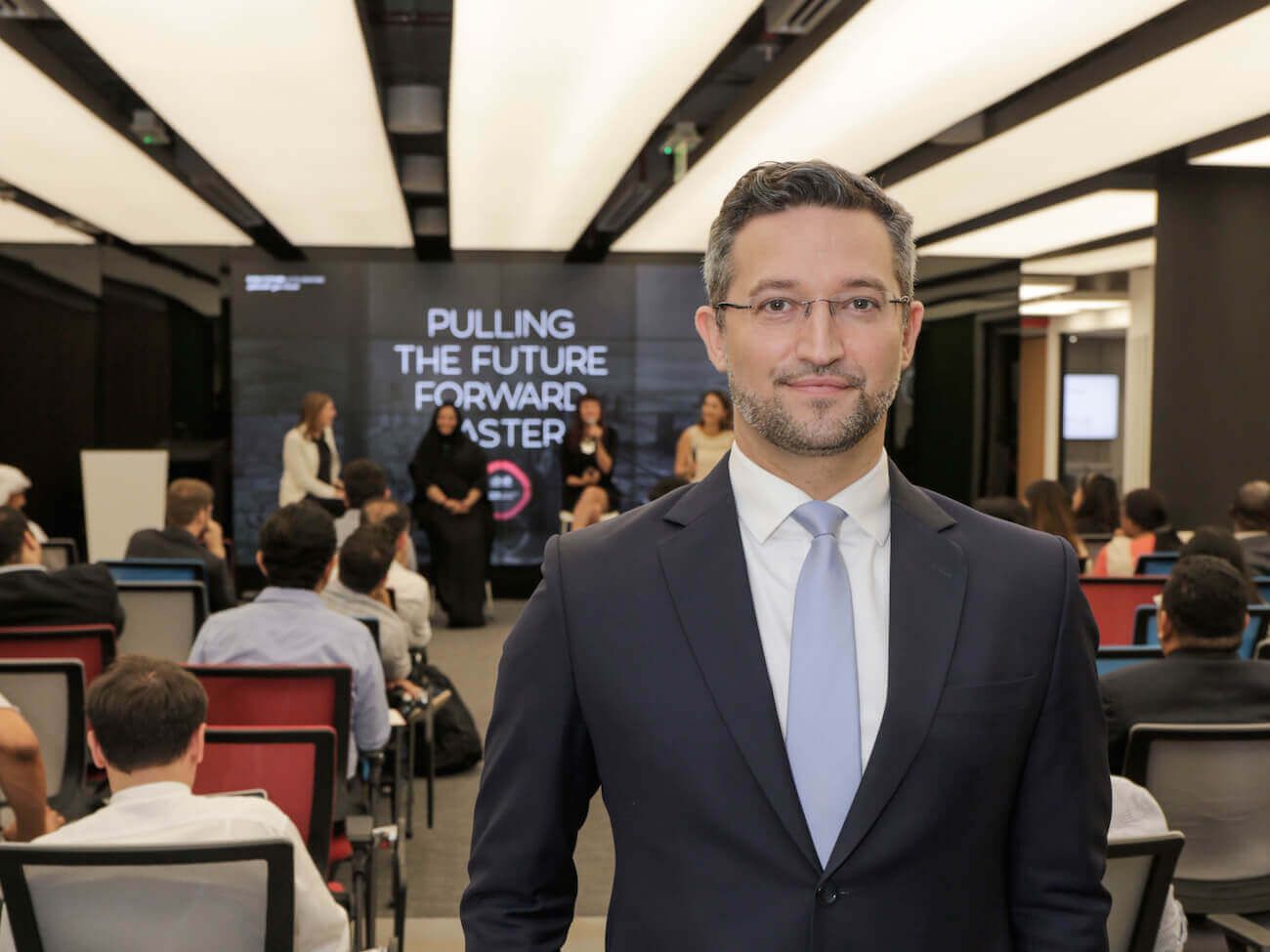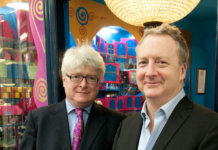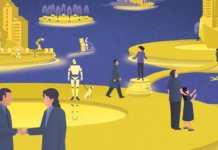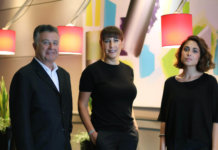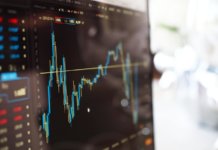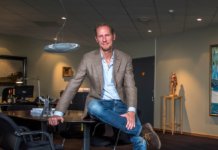Interview with Dr. Noah Raford, COO Dubai Future Foundation
We live in an age where radical technologies such as artificial intelligence and virtual reality are no longer confined to the pages of science fiction. Today, advancements in automation and the Internet of Things has led experts to claim the advent of a fourth Industrial Revolution; a revolution of cyber-physical systems that will fundamentally alter the way we live, work, and relate to one another. As governments and societies attempt to reconcile the implications of this historical change, it has become equally imperative for businesses to not only understand these new phenomena but lead the way to ensure that this revolution is one that brings prosperity and added value to our lives. In this interview with Tharawat Magazine, Dr. Noah Raford, COO of the Dubai Future Foundation, gives us a peek into the tremendous changes that the future holds, and how we can prepare ourselves to meet these challenges with hope and opportunity.
Tell us more about yourself, your career and what role you play today in the Future Foundation.
I’m the Chief Operating Officer for the Dubai Future Foundation, and before that, I was an advisor on foresight and innovation in the UAE Prime Minister’s Office. I had the privilege of working next to some incredible people who were trying to develop propositions around emerging technologies and emerging business models.
The Future Foundation was born out of the Prime Minister’s Office about a year ago to aim for the future across four areas:
First is speculative research on emerging trends, business models and strategic opportunities. The second is coalition building and stakeholder partnership to identify the active individuals transforming spaces like education, healthcare, infrastructure, transport and the economy. We then bring these people together with senior Dubai leadership in order to understand what we might be able to achieve together as we anticipate the fast-changing world.
Finally, based on the partnerships, we do pilot projects that spearhead new initiatives and strategies to address the biggest challenges and opportunities of the 21st century.
Many claim that we are in the midst of or in the beginning stages of a fourth Industrial Revolution. In broad terms, what do you feel are the main implications of this phenomenon for the business today?
I think the biggest changes that the private sector will see in the near and medium-term future is the impact of artificial intelligence and the automation. Digital, and its physical manifestation in the form of robotics and responsive environments, continues to roll out through every sector of the economy. As the venture capitalist Marc Andreesen says, “Software is eating the world.” Every bit of work that contains any procedure, any repetition of information, or anything programmable, will be automated.
On the one hand, this means that you’re going to have greater efficiencies and greater capabilities in terms of labour productivity. On the other hand, the larger working population is going to have increasingly fewer things to do. In the near term, we will witness the digitalisation of everything, which will transform most industries, both public and private. In the long term, this may lead to a deep crisis of employment and employability that will require a fundamental rethink of the nature of our economy and societies. That’s why many people are seriously exploring the idea of universal basic incomes.
In the meantime, technology and technological business models are changing faster than most governments and traditional industries can cope with. One of the interesting side effects is that a lot of new economic activity occurs in “pre-regulated” environments; i.e, situations where laws haven’t been written yet. The traditional response to is to slow everything down until regulators can catch up, but this is counter-productive. Moving forward, both government and private sector re going to have get a lot better at working together to develop or co-develop rules and regulations around novel technologies and uses. If you’re an entrepreneur or a businessperson, or if you have a family business that’s based on technology, you’re going to find yourself in situations where you’re in regulatory ambiguity. So you will have to develop a set of skills that work with regulators and learn to understand whether that concerns the public sector. This will allow you to co-develop these relationships, so you don’t waste time fighting the public sector.
Multi-generation businesses are often based on values and traditions. Values and traditions are sometimes regarded as a contradiction to technology and innovation. Do you consider these to be mutually exclusive?
On the whole, it really depends on what the values of your family and business culture are. If you look at the origins of many these family businesses, you instantly realise that many of them are based on traditions of innovation, as well as adapting to changing economic or political circumstances.
On the other hand, there can be next generation family members who work in environments where they see opportunities and catalysts for change that seem counter intuitive to their parents or grandparents. I think that’s kind of the place where you need to foster a culture of innovation, as well as a willingness to accept that there are things that not everyone might intuitively understand. I don’t think that anyone should cling to culture as some sort of fetish or totem just because it happens to be old and that’s just the way things have always been done.
I think we’re ultimately going to see that a lot of family business will find themselves having to transition from a “maintenance mode” into a “creative mode.” The best way to do this is often to separate the firm into maintenance or “stewardship” units, whose job is to keep the best part of the old business alive, and “disruption teams”, whose job is to literally create new futures for the company – even if those futures are directly competitive or at odds with the maintenance activities. It’s a hard line, but an essential 21st century skill.
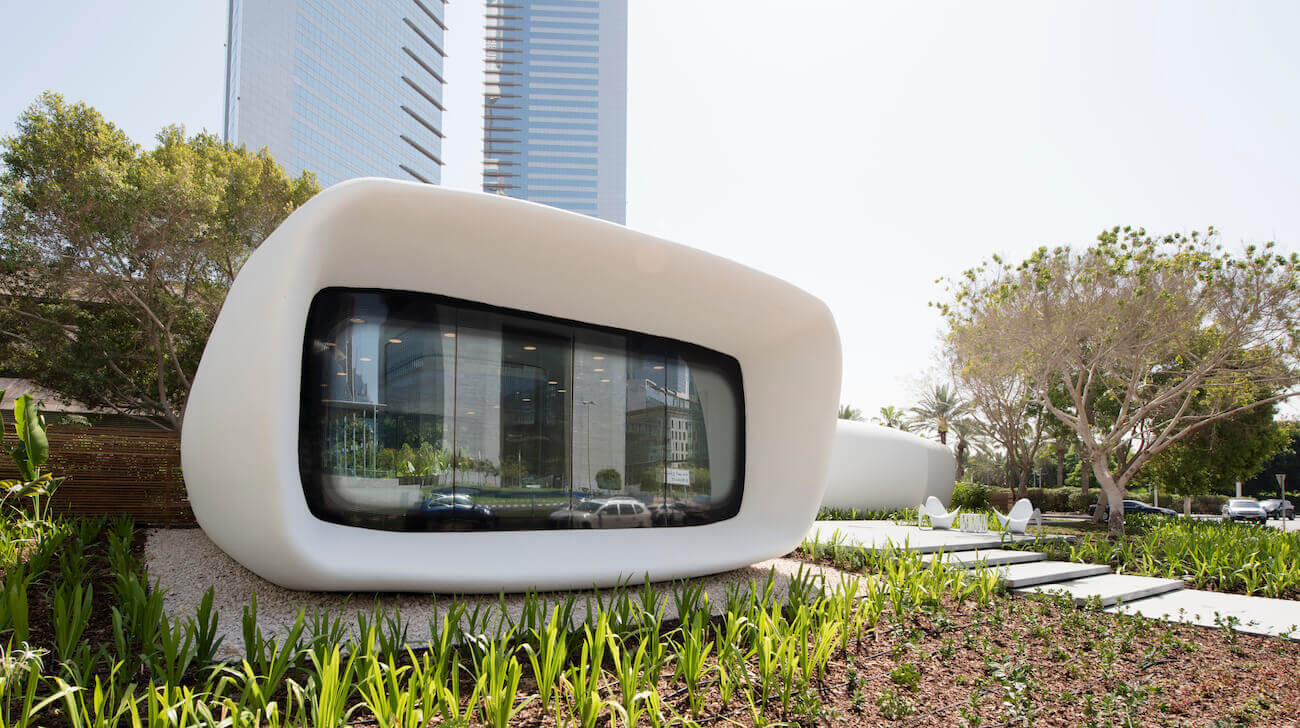
How do you see the role of radical technologies like the Internet of Things changing or impacting traditional industries?
The way I like to think of the Internet of Things is to imagine a brick, a technology which hasn’t changed for thousands and thousands of years. Compare the brick to a semiconductor or a computer chip, which increases in technological sophistication at an exponential rate.
Traditionally there’s been a separation between the brick economy and the semiconductor economy, but technologies like the Internet of Things re bringing those two things together. Imagine that everything you produce suddenly has an identity, a brain, personality, and set of eyes and ears that lets it communicate with everything you produce. All of these things are in constant communication with each other, and all of them respond to commands, to tasks, to purpose – smart products working in sync with each other. This fundamentally changes the nature of your business and your product offer and is the kind of radical convergence between traditional and technological industries that will become more commonplace in the future.
You can see the early impacts of this in the rise of the sharing economy. The sharing economy has fundamentally changed the way we think about sales and consumption. Instead of buying products, people just borrow or rent them. The concept of ownership is less important than easy and affordable access. This means that business models that are based on who buys and owns products will have quickly shift from sales to a business model based on lending, leasing, licensing and subscription.
If you were to speak in very generic terms, what do you expect will be the most radical changes in consumer behaviour in the next few years?
The cyber-theorist Jaron Lanier has a great book called “You Are Not a Gadget”, in which he paints this picture of Google as a digital replica of the entire world. Services like Google use all the data they have about you, about what you want, about what you like, to develop a digital copy of who you are, what you like and what you want to be. They then use that digital copy of you to essentially target specific things just to you.
That means that we’re going to see a tremendous fragmentation of consumer targeting and huge rise in ultra personalisation. It is now possible to create a product that only you and maybe three other people in the whole world would want. It is becoming trivial to recombine physical components to produce something that has a global audience of 30 people, then actually ship this thing to them. This might be a flash in the pan, or might suddenly explode to become a global phenomenon. Think about the hover board, for example. It was a niche idea serving a tiny community that blew up and suddenly appeared everywhere. This is just one example. For every global hover board, there are 100,000 similar ideas that appeal to a tiny audience, all of which result in this kind of micro-targeting, ultra personalization, and flexible production supply chains.
This kind of “mass personalisation” is going to drive tremendous fragmentation in the market, but also open up tremendously exciting possibilities. People want what they want, and they want very specific things about that. If they can dream it, now they can get it.
[ms-protect-content id=”4069,4129″]
The family business model is one that has based its success on social capital. Do you believe that this is still going to be an advantage, or is it not going to matter anymore?
With intelligent, even emotional machines, we must face the possibility that we may be able to synthetically reproduce what we now think of as the “human touch”. If you look at a really good hotel chain, for example, they will know how hot or cold you like your room. They know what kind of tea you like to have stocked, and they know all about your various preferences. In the past, the only way to have that human touch was to have people there who remember who you are, welcome you back and smile at you.
This takes deeply sensitive staff and long-term relationships to get right. But in the future, computers may help us, and indeed, even replace us, in this process. Computers are already becoming increasingly powerful at reading our emotions and catering to our needs. Software called Affectiva from MIT can read people’s emotions with 90% accuracy just by looking at their facial expressions. There is a chatbot in China called Xiaoice that has 30 million daily users. It kind of flirts with you, is your virtual friend, laughs at your jokes, etc. Every day, 10 million people tell the service they are in love with it. That’s amazing. People know it’s not real, but they develop feelings for it anyway. It’s “real enough”.
We are within a handful of years of having convincing relationships with artificially intelligent beings that will be indistinguishable from real people in many meaningful ways… for better or for worse! What used to be a luxury service available to a lucky few could suddenly become a commodity available to almost anyone. After all, what is the human touch when most people can’t differentiate between a human and synthetic touch? A lot of what we perceive as a personal touch is just various specific information about us – information that is now largely accessible online and available for an artificial intelligence to simulate and synthesise. What will this mean for family businesses?
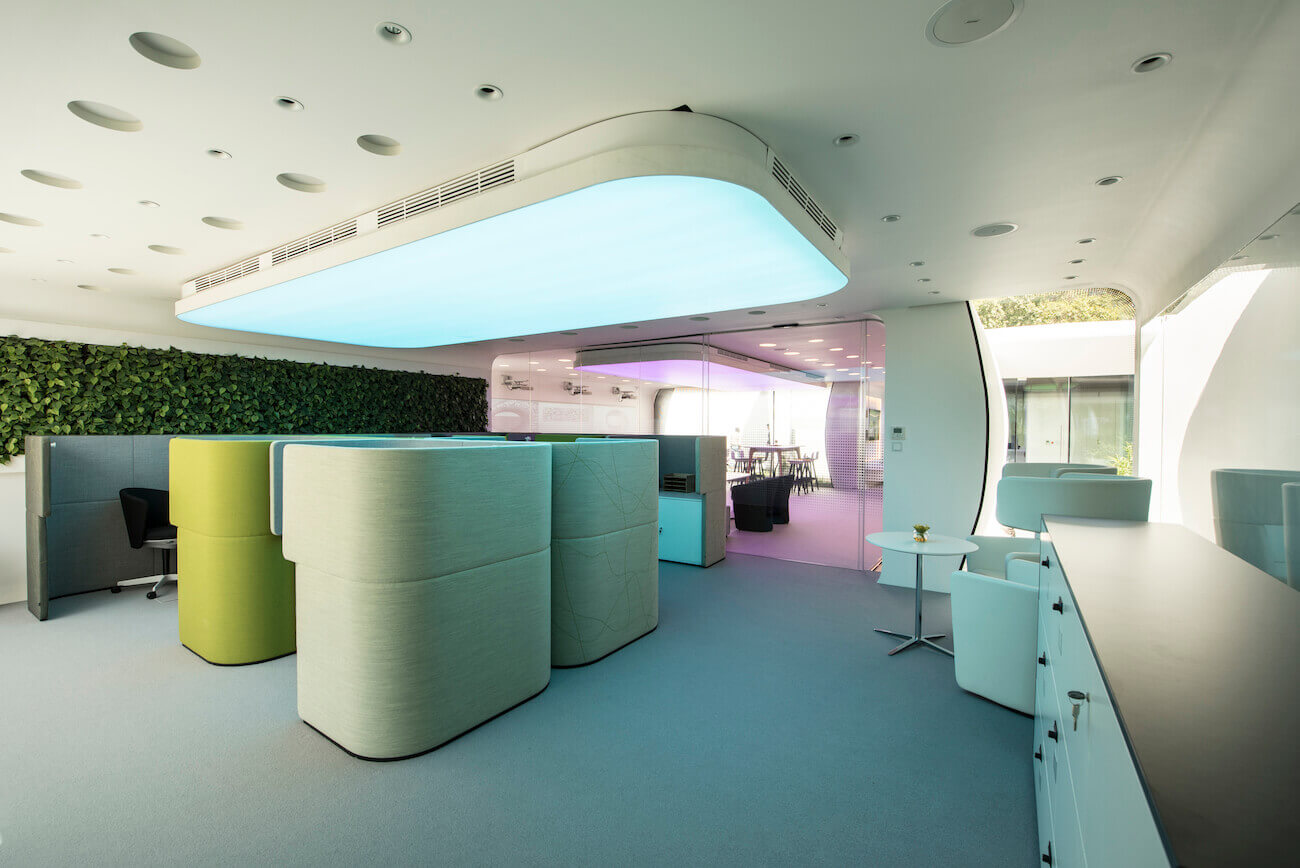
What should be the role of government in shaping future thinking, industries of the future and motivating a private sector to embrace what is to come?
Government must be the visionary first movers of the 21st century. We in the middle of transition from the 20th to the 21st century. Government must take big, bold, pioneering steps towards future in order for the private sector to follow. Think of the Apollo Mission, of the building of the Internet, or of Silicon Valley. All of these were driven by bold, public imagination.
What does it mean to have self-driving cars or a completely automated city? What does that mean for the labour force? What does that mean for the relationship of people to each other and to the government? What does leadership look like in that context? No one really knows, and there are no right answers to that, but governments must lay the groundwork.
The single most important factor determining who will be successful or not in the next decade will be the extent to which governments have the leadership and ambition to move boldly forward into these uncertain territories.
This is very much inspired by the vision of His Highness Sheikh Mohammed and of the Dubai government; it is important for government to take bold steps that lay out a vision of what the world should look like as we head deeper into the future. That requires big experiments – experiments in 3D printing, automation, artificial intelligence or whatever else that might look like.
What skills do we need to teach our children in order to be successful business leaders in the future? What are the skills are going to enable them to make the most of their family legacy in the future?
Our children need the emotional tools to deal with the drastic transitions they will face in their lifetime. These transitions are scary, and the tangible terror of an unseeable future is what results in things like Brexit. These are symptoms of fear and disengagement.
Leaders of the future must be able to emotionally and tactically deal with the decline of the world as we used to know it, while simultaneously being able to cultivate a sense of optimism and hope stepping forward into the new world. That’s the most important skill of all: emotional intelligence.
It has to start with you. You can’t be afraid of the future. The future is awesome, and there is so much opportunity waiting for all of us. You have to try and find an optimistic perspective for how you fit into the future, and for the role you can play in creating it. This is definitely something that you can develop in conjunction with the support of your family and should be every parent’s privilege and opportunity.
[/ms-protect-content]


